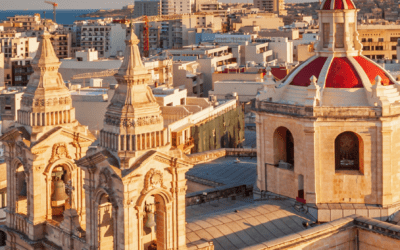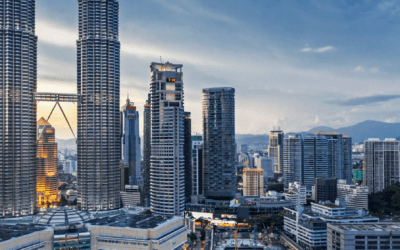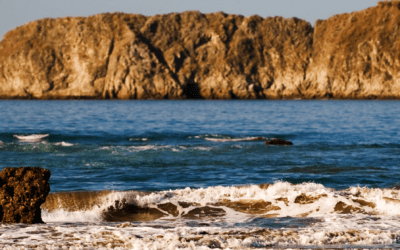Dateline: Scottsdale, United States
It’s been exactly 1,079 days since I last set foot on US soil, and a mere 24 hours on the ground here has reminded me of why I generally avoid spending time in the Land of the Free.
Even ensconced in one of my favorite resorts in the world, there is a feeling here: a feeling of insularity and of fear to leave. After all, only a small fraction of US citizens hold active passports. There’s even the option of holding a “passport card” that allows travel only to Canada and Mexico for those who want adventure light.
In the last three years, I’ve undertaken a lot of personal development work and can honestly say I’m less frustrated with the United States on a personal level. So, too, am I less judgmental towards those who don’t want to travel. Everyone has to do what is best for them.
What hasn’t changed, however, is my feeling that any successful, young, and mobile person should seriously consider getting out of the United States not only for the great lifestyle and tax benefits, but also to watch the rise of the emerging world.
When any of my friends in Arizona or California or Ohio tell me that this Nomad lifestyle is “good for me”, it’s usually because they either haven’t experienced life outside of the United States, or they have family they don’t want to leave.
In a way, I understand: it’s difficult to decide to pack up and leave the only country you’ve lived in your entire life.
As a result, many entrepreneurs and investors seeking a more tax-friendly environment seek out domestic options. For years, successful Californians flocked to Nevada and wealthy New Yorkers headed to Florida to enjoy zero state income tax.
Moving to Miami or Las Vegas doesn’t sound that intimidating. The Vegas-to-LA drive is a comfortable if not boring four-hour stretch, and getting from the Sunshine State to the Big Apple only requires a short albeit potentially bloody United flight.
However, moving to Florida does nothing to eliminate the much bigger tax burdens for US residents: the federal income tax, and Social Security and Medicare tax. You save a few percentage points, but still get soaked.
Enter Puerto Rico.
Several years ago, the bankrupt island of Puerto Rico – a US territory but not a state – rolled out hefty tax breaks to Americans willing to come and develop the economy. Programs like Act 20 and Act 22 were designed to bring capital to and create jobs in Puerto Rico.
Puerto Rico’s economy is rather dependent on manufacturing, and unemployment rates there are high. As of earlier this year, the unemployment rate was almost triple that of the “headline” rate on the US mainland.
On top of that, Puerto Rico’s treasury has long been running on empty, and so they used their special status within the United States to lure successful employers down to the island.
It was almost five years ago now that I explained to you why so many Wall Street types were heading down to the island. Forbes talked about it, too.
When Peter Schiff keynoted my first ever offshore conference in 2014, he spent plenty of time in our green room telling me why he loved Puerto Rico’s tax incentives, and how he was making a fortune merely by buying prime real estate there.
The deal was simple: hire a few people and commit to spending at least half of your time physically present in Puerto Rico, and you could pay a few meager percentage points in tax.
Because Puerto Rico has special status within the United States, you would enjoy huge exemptions on federal income tax and reduce your tax rate by as much as 90%.
At the time, I suggested that the deal may be sweet for big Wall Street types, but made less sense for the average $1 million-a-year online entrepreneur.
Not only is Puerto Rico rather bureaucratic, but there were tales of lawyers on the island charging up to $120,000 for a turnkey setup. For that price, you could buy citizenship in Dominica (and now St. Lucia as well).
On top of that, the most-prescribed programs require you to employ people, something that many entrepreneurs don’t need to do, or don’t want to do in Puerto Rico in particular. Entrepreneurs who want to hire might be better served by hiring employees in Macedonia and getting a second passport there instead, for example.
My biggest beef, however, with the program was that I figured it was subject to change. After all, Puerto Rico is still part of the United States, even if in its own unique way. However, I never trusted the US government – which is also bankrupt – to leave Puerto Rico well enough alone.
I imagine that, like so many things, the IRS and Congress would let Puerto Rico attract a few rich people… until it got out of hand. Then, the tax incentives would be targeted.
Now, there is an entirely different threat: Puerto Rican statehood.
Puerto Rico is holding the latest in a long string of votes on the issue of statehood this weekend. Looking at the last election and the trends, it doesn’t seem likely to pass, and I imagine that this particular vote will not affect the tax incentives offered.
However, the fact that there is even another vote is the latest indication of trouble on the island. Puerto Rico is flat broke, can’t pay its pension obligations, and is dealing with the long-running malaise that comes with high unemployment.
The government could back out of any deal, and it could certainly change the terms of its tax friendly incentives… or have them watered down by the US government itself.
For my money, becoming tax resident in Puerto Rico to cut your US tax bill is suitable for a rather small percentage of the population seeking friendlier shores.
But for the average entrepreneur, Puerto Rico never made a lot of sense.
That’s part of the trouble with all of the advice coming from the doom-and-gloom people telling you to go offshore: many of them are large-scale investors, not entrepreneurs, and many have never lived outside of the United States.
Set aside the potential risks, the paperwork, and the fact that you still do need to pay some tax to take advantage of the program. You also need to live in Puerto Rico. Like really, truly live there.
I’ve spoken to several people who were sold on the program by some fancypants tax guru in a skyscraper, and none of them were ecstatic with their choice.
Meanwhile, I have also spoken to several former US citizens who considered moving to Puerto Rico but ultimately decided to renounce US citizenship; none of them regret their decision and they are happy they solved their problem rather than merely reduced it.
I’m not saying that renouncing US citizenship is the only option besides moving to Puerto Rico.
There are legal ways for US citizens and residents to reduce their US tax obligations by setting up companies and living overseas.
Once you can mentally wrap your head around the idea of moving from, say, California to Nevada, you’re already on the right track.
If you moved to Nevada, perhaps you imagined Puerto Rico as the next step.
But if you can move to Puerto Rico, you can move to Panama… or Costa Rica… or Colombia.
Heck, when you think about it, you realize that even Vanuatu isn’t THAT inaccessible for the twice-a-year visits to see family and get your fill of free refills and waitresses that call you “hun”.
Most of the folks I’ve had push me to recommend Puerto Rico figured that they could “slip away” on a boat and escape back to the mainland while claiming to live in San Juan. Of course, that’s a big no-no, and it goes to remind you that dealing with the US government is something that can not be taken lightly.
While the odds of Puerto Rico becoming a state even if their non-binding vote passes are still low, the uncertainty reminds me that the best way to distance yourself from the IRS isn’t to go hang out in a US enclave with a tax policy that could fall apart tomorrow.
Treating symptoms rather than causes isn’t good in medicine, and it isn’t good when deciding to go offshore. Finding a solution that gives you the end result you want – from a better, cheaper lifestyle to lower taxes – means looking beyond shiny objects like Puerto Rico, in my opinion.









